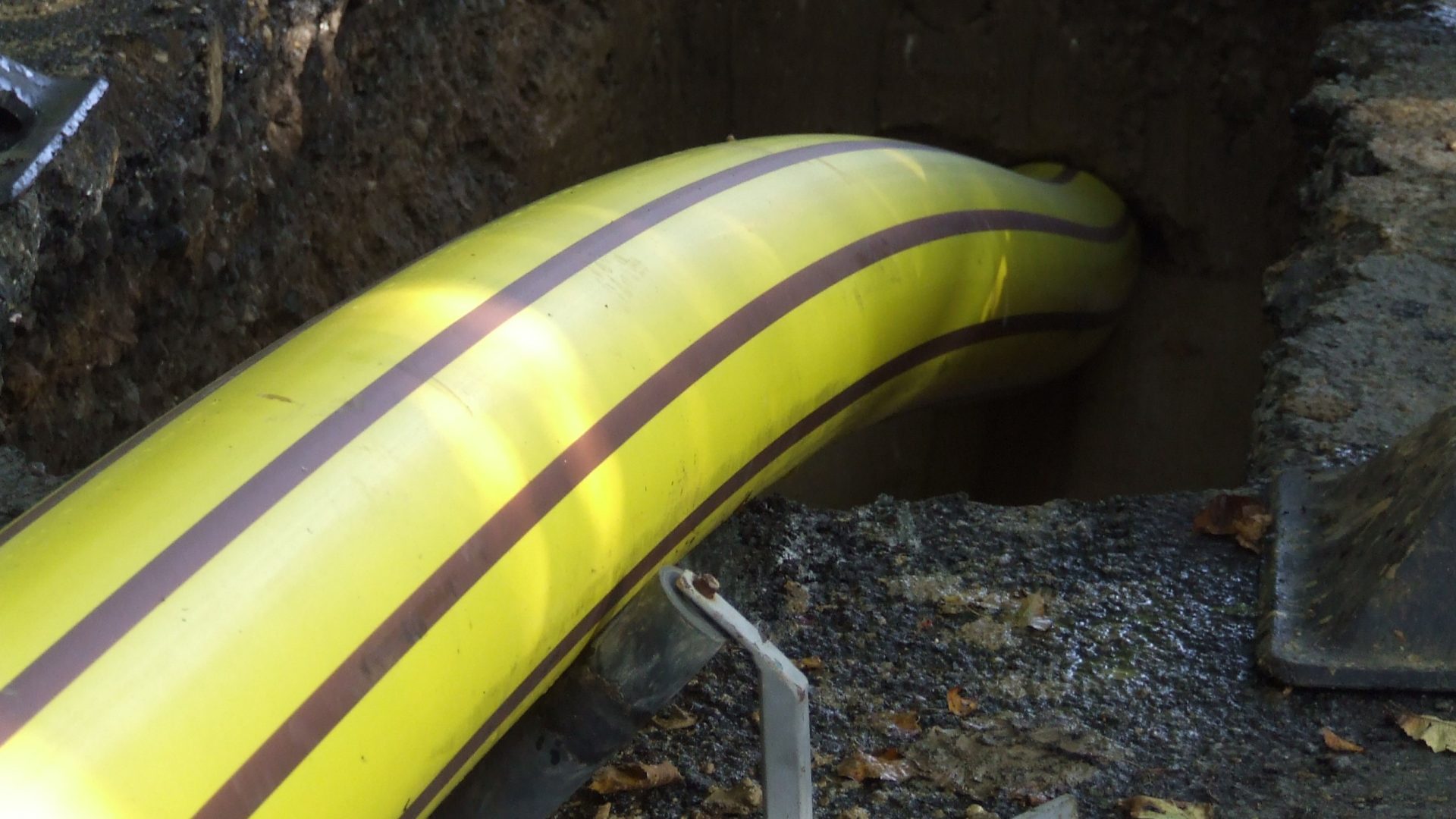There comes a time when something wears out and needs to be replaced or rehabilitated. Underground pipelines are no exception – although replacing them can be very costly and often has a huge impact on the local community when such works take place.
The UK’s buried pipe infrastructure is typically 100 to 200 years old and significant effort goes into keeping it safe, functional, reliable and largely invisible. However, pipes do need replacing and over the last 35 years much of this work has been achieved by our gas and water utilities using two common forms of trenchless technology. An increasingly important additional benefit from this technique is the reduced carbon footprint of the replacement pipes.
The UK water industry is regularly reported to have challenging levels of leakage from its ageing network and part of the solution is to replace some of these older pipes with new ones. The new pipes usually need to be at least the same size as the older ones, and often the technique of pipe bursting, used in conjunction with new polyethylene (PE) pipes, can offer speed of replacement, and may also drive costs down and reduce greenhouse gas emissions (GHG) compared to the alternative of digging a new trench for the replacement pipe.
The UK gas industry is currently replacing all old pipes within 30 metres of residential properties with new polyethylene pipes to keep us safe, as well as provide the means to warm our homes. The new pipes are able to be slightly downsized, as originally these pipes were used to transport gas from coal, and latterly transport natural gas, which does not require the same amount of gas to achieve similar levels of warmth at home. Polyethylene pipes are also able to be used to transport hydrogen gas blends in the future. The reduced size is an advantage as gas pipe installers can mostly use a technique called slip lining, which is even more energy efficient than pipe bursting, producing emission reduction scenarios of between 55 and 91 per cent compared to digging new trenches.
These findings are published in several openly available scientific papers, including a report in the Journal for Green Building, that compares the replacement of sewer infrastructure, likely a big challenge for water companies in the future. It contrasts using pipe bursting in place of trenching and findings for a specific example match the range reported here, in this example a 77 per cent reduction in GHG emissions through less energy being used.
The accumulated evidence has been welcomed by the BPF Pipes Group’s David Williams who commented:
“We have known for some time the benefits of trenchless technology and with the added focus on greener and more sustainable ways of maintaining and replacing our infrastructure its advantages are under the spotlight again. We welcome the wider use of these trenchless techniques to install polyethylene pressure pipes for water, gas and other replacement applications.”
The findings of a supporting literature review are on the BPF Pipes Group website
An original report featuring a specific pipe bursting example can be accessed from the Journal of Green Building at Comparison of Emitted Emissions Between Trenchless Pipe Replacement and Open Cut Utility Construction | Journal of Green Building (allenpress.com)



